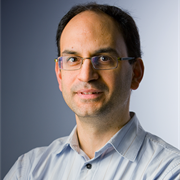Chemical Engineering
Spring: Sep 15
Summer: n/a
Part-time (Daytime)
Overview
The Chemical Engineering doctoral program trains students to apply the principles of chemistry, biology, physics, and math to solve problems that involve the production or use of chemicals, fuel, drugs, food, and many other products.
Program Highlights
The research areas underlying the Chemical Engineering doctoral program fall into three broad categories:
- Materials for Energy and Sustainability
- Cell and Biomolecular Engineering
- Systems and Process Modeling
Graduate students will gain advanced study in mathematical methods in chemical engineering, chemical and catalytic reaction engineering, thermodynamics and transport phenomena.
Career Outcomes
Chemical engineers often focus on energy production, catalysis, metabolic and cell engineering, nanomaterials and biomaterials, and systems engineering. They design processes and equipment for large-scale manufacturing, plan and test production methods and byproducts treatment, and direct facility operations.
The program builds on the foundation of an undergraduate engineering education and prepares students for careers as world-class researchers through the completion of advanced coursework, thesis research, and professional service (e.g., teaching assistance).
Application Requirements
Applicants to the PhD in Chemical Engineering program are generally expected to have earned a prior degree in Chemical Engineering. Applicants with degrees in closely related engineering disciplines (such as Materials Science and Engineering or Polymer Engineering) who already have a working knowledge of the core course content of this program (i.e., partial differential equations describing heat, mass, and momentum transfer processes, chemical kinetics/reactors and catalysis, chemical thermodynamics) are also encouraged to apply.
Please note that applicants with degrees in Chemistry or Biochemistry are expected to have already completed coursework in ordinary/partial differential equations (at a minimum), and ideally heat/mass/momentum transport, as well. These courses should be clearly shown on the transcript(s) and must also be described in the applicant's personal statement.
- Application Fee
- Resume/CV
- Personal Statement
- Transcripts
- Three letters of recommendation
- Official TOEFL, IELTS, or Duolingo test scores (if applicable)
- GRE General Test scores are not required
- Portfolio (optional)
Tuition and Financial Aid
We recognize that attending graduate school involves a significant financial investment. Our team is here to answer your questions about tuition rates and scholarship opportunities.
Please contact us at gradadmissions@tufts.edu.
Faculty

Emmanuel (Manolis) Tzanakakis

Emmanuel (Manolis) Tzanakakis
Research/Areas of Interest: stem cell and tissue engineering, optogenetics, diabetes

Ayse Asatekin

Ayse Asatekin
Research/Areas of Interest: membranes, polymer science, material science, separations, surface chemistry

Prashant Deshlahra

Prashant Deshlahra
Research/Areas of Interest: heterogeneous catalysis, sustainable production of chemicals and fuels, DFT calculations

Nathaniel Eagan

Nathaniel Eagan
Research/Areas of Interest: Sustainability, experimental heterogeneous catalysis, clean energy, fuels and chemicals, biomass

Milo Koretsky

Milo Koretsky
Research/Areas of Interest: engineering education research, learning and engagement in the university classroom, development of disciplinary practices, instructional design and technology development, instructional practices, organizational change, social practice theory

Kyongbum Lee

Kyongbum Lee
Research/Areas of Interest: metabolic engineering, tissue engineering, systems biology

Graham Leverick

Graham Leverick
Research/Areas of Interest: electrochemical energy storage and conversion, batteries, electrolytes

Derek Mess

Derek Mess
Research/Areas of Interest: thermal barrier coating (TBC), solid oxide fuel cell (SOFC) ceramics, carbon dioxide acceptors

Nik Nair

Nik Nair
Research/Areas of Interest: synthetic biology, systems bioengineering, protein engineering, metabolic engineering, biofuels, biocatalysis

Matthew Panzer

Matthew Panzer
Research/Areas of Interest: Ionic liquids, ionogels, eutectogels, polymers, ion transport, electrochemical energy storage

Daniel Ryder

Daniel Ryder
Research/Areas of Interest: process control

James Van Deventer

James Van Deventer
Research/Areas of Interest: Synthetic Biology, Chemical Biology, Protein Engineering, Antibody Engineering, Drug Discovery, Genetic Code Expansion, Noncanonical Amino Acids, Tumor Microenvironment.

Hyunmin Yi

Hyunmin Yi
Research/Areas of Interest: nanobiofabrication, smart biopolymers, BioMEMS, material science